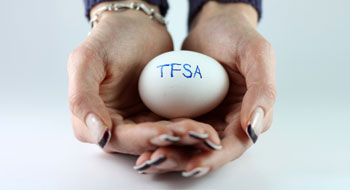
Liberal and New Democrat politicians are criticizing the government’s plans to increase TFSA contribution room, a move expected in the 2015 Budget.
“Doubling the TFSA limit does nothing for jobs and growth; it does nothing to help middle-class families,” Liberal MP and finance critic Scott Brison told Advisor.ca.
The government has hinted it would increase annual TFSA contribution limits to as much as $11,000 from the current $5,500.
Brison says few middle-class families can afford to save an additional $22,000 per year (based on two parents), so the tax benefits will go mainly to the wealthy. Reports from the Parliamentary Budget Office and the Canadian Centre for Policy Alternatives have also suggested the increased limit will disproportionally benefit the rich.
Read: TFSA contribution limit expected to double
Instead, the Liberals say the government should focus on support for small business and on infrastructure investment.
Minister of State for Finance Kevin Sorenson says the average family saved $6,600 in taxes last year. He also confirms that the government will introduce a balanced budget.
NDP finance critic Nathan Cullen says he thinks the Conservatives will have to dip into reserve funds, and rely on the estimated $3.3-billion profit it made on the sale of GM shares, to balance the budget. He adds the government should prioritize the economy over tax breaks. The government had predicted a $1.6 billion surplus this year, before oil prices plummeted last fall.
Read: CARP members support TFSA increase
Recently, Finance Minister Joe Oliver said that it’s possible the government will have to dip into its $3-billion contingency fund to avoid a deficit.
But, says Cullen, “We don’t need more tax breaks for the rich…we need help for the middle class,” he says. “Those are the things that are going to help the Canadian economy and Canadians more broadly.”
The economy has had the “worst 16-month track record outside of a recession in 40 years,” Cullen adds.
Read: TFSA contributions expected to rise
Employment Minister Pierre Poilievre says the economy has added 1.2 million new jobs, and that the government will continue to cut taxes. He says the government’s budget priorities are trade, employment training and tax cuts.
Brison adds the government should be concerned with the Bank of Canada’s projection that GDP will only grow 1.9% this year.
This is the last expected budget before the anticipated October election. The budget will signal the Conservative Party’s campaign priorities, and reach out to groups it hopes to woo at the ballot box, including seniors and families.
In a measure aimed at seniors, the government is expected to loosen RRIF rules in tomorrow’s budget.
Read: Budget could change RRIF withdrawal rules
The budget could defer or eliminate the rule forcing people to withdraw from their RRIFs at 71. The government could also lower the minimum amounts people are forced to take out each year.
Investment industry groups such as CALU, and seniors’ groups such as CARP, have been calling for the changes as Canadians’ life expectancies have increased.
Looking for related stories? Read more of our coverage of the 2015 federal budget.
This story originally appeared on our sister site, Advisor.ca.
